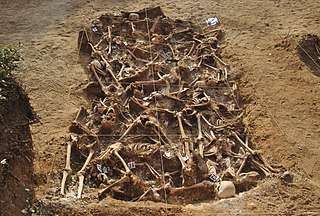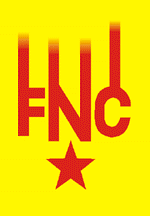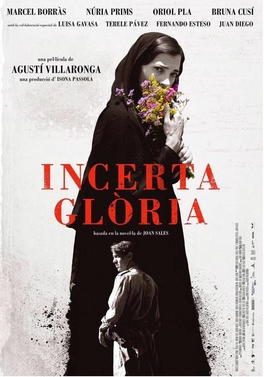Related Research Articles

Francesc Macià i Llussà was a Catalan politician who served as the 122nd president of the Generalitat of Catalonia, and formerly an officer in the Spanish Army.

Lluís Companys i Jover was a Catalan politician who served as president of Catalonia from 1934 and during the Spanish Civil War.

The count of Barcelona was the ruler of the County of Barcelona and also, by extension and according with the Usages and Catalan constitutions, of the Principality of Catalonia as Princeps for much of Catalan history, from the 9th century until the 18th century. After 1164, with Alfonso II of Aragon and I of Barcelona, the title of count of Barcelona was united with that of king of Aragon, and after the 16th century, with that of king of Spain.

Joaquim Amat-Piniella was a Catalan writer. He is best known for his semi-autobiographic novel K.L. Reich, based on his experience as a prisoner in the Mauthausen concentration camp during the Second World War.

The Parliament of Catalonia is the unicameral legislature of the autonomous community of Catalonia. The Parliament is currently made up of 135 members, known as deputies, who are elected for four-year terms or after extraordinary dissolution, chosen by universal suffrage in lists of four constituencies, corresponding to the Catalan provinces. The Parliament building is located in Ciutadella Park, Barcelona.

In the history of Spain, the White Terror describes the political repression, including executions and rapes, which were carried out by the Nationalist faction during the Spanish Civil War (1936–1939), as well as during the first nine years of the regime of General Francisco Franco. In the 1936–1945 period, Francoist Spain had many officially designated enemies: supporters of the Second Spanish Republic (1931–1939), liberals, socialists of different stripes, Protestants, intellectuals, homosexual people, Freemasons, Jews, immigrants, Basque, Catalan, Andalusian, and Galician nationalists.

Francisco de Asís Vidal y Barraquer was a Spanish Catalan cardinal of the Roman Catholic Church who served as Archbishop of Tarragona from 1919 until his death; he was elevated to the rank of cardinal in 1921.

Oriol Bohigas i Guardiola was a Spanish architect and urban planner, known for his work in the modernization of Barcelona.

Emili Teixidor i Viladecàs was a Catalan writer, journalist and pedagogue. He wrote over thirty novels, mainly for children and teenagers, but he is perhaps best known for his acclaimed adult novel, Black Bread, which inspired a film of the same name.

The Revolution of 1934, also known as the Revolution of October 1934 or the Revolutionary General Strike of 1934, was a revolutionary strike movement that took place between 5 and 19 October 1934, during the black biennium of the Second Spanish Republic. The revolts were triggered by the entry of the conservative Spanish Confederation of the Autonomous Right (CEDA) into the Spanish government. Most of the events occurred in Catalonia and Asturias and were supported by many Spanish Socialist Workers' Party (PSOE) and General Union of Workers (UGT) members, notably Largo Caballero, as well as members of the Confederación Nacional del Trabajo (CNT). Historians have argued that the incident sharpened antagonism between the political Right and Left in Spain and was part of the reason for the later Spanish Civil War. Around 2,000 people were killed during the uprising, which was repressed by Spanish government forces.
Joan Sales i Vallès (1912-1983) was a Catalan writer, translator and publisher, who promoted Catalan culture under the Franco dictatorship. His best-known novel and major testament is Uncertain Glory.
Uncertain Glory is a novel by the Catalan writer and publisher Joan Sales i Vallès. The backdrop to the novel is the Spanish Civil War, in which Sales fought on the Republican side. The novel portrays the war in all its brutal complexity and offers no obvious partisan message. As Spanish writer Juan Goytisolo points out in his foreword, Sales "does not root his thinking in certainties but rather in lives exposed to the world’s absurdity, its procession of blood, death and injustice".

The National Front of Catalonia was a Catalan nationalist party which was active between 1940 and 1990. The FNC was created in 1940 by former members of the Estat Català and the Catalan Nationalist Party, with the latter dissolving and splitting its membership between the Estat Català and the FNC. The main goals of the FNC were to present an opposing front to the Spanish State of caudillo Franco and to advocate for Catalan independence. In 1946, the FNC became an officially independent party by breaking its relationship with the Estat Català.

Bonaventura Gassol i Rovira, known as Ventura Gassol, was a Catalan poet, playwright and politician. A nationalist, he was prominent member of the Esquerra Republicana de Catalunya.
Celestí Boada i Salvador was a Spanish-Catalan politician. Born in Santa Coloma de Gramanet, he was a member of the Republican Left of Catalonia and supported the Second Spanish Republic in the Spanish Civil War. Because he was a Catalan nationalist, he was executed by firing squad by the government of Francisco Franco in Campo de la Bota after the Nationalist victory.
Catalonia Yes is a Catalan independence political platform founded in 2011 bringing together people from civil society and various public figures in favour of independence for Catalonia.

Francoism in Catalonia was established within Francoist Spain between 1939 and 1975, following the Spanish Civil War and post-war Francoist repression. Francisco Franco's regime replaced Revolutionary Catalonia after the Catalonia Offensive at the end of the war. The dictatorship in Catalonia complemented the suppression of democratic freedoms with the repression of Catalan culture. Its totalitarian character and its unifying objectives meant the imposition of a single culture and a single language, Castillian. The regime was specifically anti-Catalan, but this did not stop the development of a Catalan Francoism that was forged during the war and fed by victory.

When, in 1939, World War II erupted in Europe, Catalonia was part of Spain led by the caudillo Francisco Franco, who declared Spain neutral in the conflict. The country was devastated by the recently finished Spanish Civil War, which resulted in the defeat of the Second Spanish Republic and the creation of the Spanish State, and Catalonia, who was an autonomous region under the Republican government (1931-1939) lost the whole of its self-government when the Nationalist army occupied the area.
Black Bread is a semi-autobiographical novel published by the Catalan pedagogue, journalist and writer, Emili Teixidor i Viladecàs in 2003, when the author was seventy years old, it describes the coming of age of a young boy in the repressive aftermath of the Spanish Civil War in rural Catalonia.

Uncertain Glory is a 2017 Spanish drama film directed by Agustí Villaronga based on the eponymous novel by Joan Sales. Shot in Catalan, its cast is led by Marcel Borràs, Núria Prims, Oriol Pla and Bruna Cusí.
References
- ↑ Sales, Joan (2017). Winds of the Night. MacLehose Press. pp. Afterword (by Paul Preston). ISBN 978-0857056160.
- ↑ Ibarz, Mercè (20 March 2017). "El pensament fermat de Joan Sales (interview from 1980 in Catalan)". Vilaweb.
- ↑ Guillamon, Julià (4 July 2012). "Notícies del IV batalló (in Catalan)". La Vanguardia.
- ↑ Winds of the Night. pp. Chapter V.
- ↑ Winds of the Night. pp. Chapter V.
- ↑ Winds of the Night. pp. Chapter IV.
- ↑ "Demonstrating priests beaten by police in Barcelona". The Catholic News Archive.
- ↑ Winds of the Night. pp. Chapter VII.